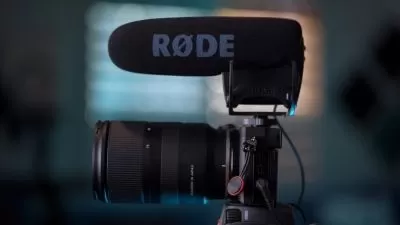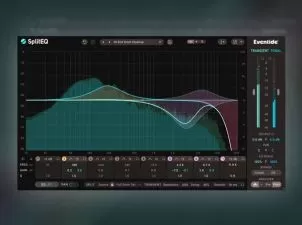About Audio EngineeringLearn More
Next time you listen to a radio broadcast, television show, or piece of music, thank an audio engineer. Audio engineers are responsible for packaging sound into high-quality recordings. This process involves capturing sound and piecing it into a complete audio puzzle through the processes of mixing and mastering.
Sort by:
Sorting
The newest
Most visited
Course time
Subtitle
Filtering
Courses
Subtitle

Udemy


Voiceover Masterclass
Home Studio Audio Production For Voice Acting and Voice-Over 3:30:46
English subtitles
11/16/2022
Books
Frequently asked questions about Audio Engineering
Audio engineering involves working with sound in a technical sense to mix, record, and/or manage audible content. For instance, an audio engineer who specializes in music will piece together different instruments and vocals in a way that suits the client’s desires. Whether working in a studio or a live setting, audio engineering calls for an in-depth knowledge of both acoustics and the recording equipment being used. This knowledge extends both to the gear engineers personally use during production — mixers, digital audio workstations, rack-mount gear, and so on — as well as gear the performers use, such as microphones and amplifiers. This knowledge is a key component of audio engineering, as it allows for informed decisions on how best to capture and present sound while minimizing common problems like noise, feedback, and other undesired artifacts.
Audio engineering roles largely fall into two categories: live and studio. Studio audio engineers work with producers — or are producers themselves — to mix recorded audio tracks into a cohesive, great-sounding final product. Sometimes audio engineers are also recording engineers, using their trained ears and studio know-how to record artists before mixing their music. They may mix or master music. Live audio engineers are in charge of sound at live events, ensuring the sound is of the highest quality and set at the appropriate levels for the room and setting. Live audio engineers may also manage specific jobs such as monitoring. In both studio and live settings, audio engineers strive to have an in-depth working knowledge of all the gear present in the signal chain.
Audio engineering is a diverse and rewarding career. Most audio engineers appreciate having the option to work in a range of different roles and environments, from traveling sound engineers for bands and theater to more stationary positions in hometown venues. Those who prefer to work late at night will enjoy live music, while audio engineers who work in a home studio might be able to set their own hours. Another great thing about the profession is that the large, heavy, expensive gear of yesterday has been partly replaced by highly versatile and affordable software. This makes it possible to break into the field with a lower monetary investment.


















